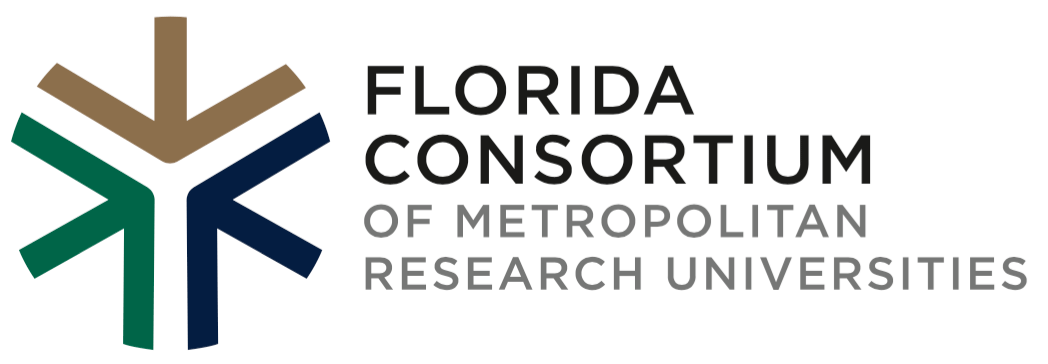Miami FL – Florida Consortium members gathered in Miami on the campus of Florida International University for their annual Student Success Conference. The theme of the day was next steps and participants worked throughout the day on what the next steps were going to be for the Florida Consortium and our members. The day began with an opening address by Florida International University President Dr. Mark B. Rosenberg. During his speech he challenged the participants to be bold in their efforts to make college more affordable, more accessible, and tailored for each student to reach their full potential.
An example of this challenge was his highlighting the FIU program Fostering Panther Pride. This program provides additional services and support to students who have been identified as foster or homeless students. At FIU over 100 students have been identified as either coming up through the foster care system or are homeless. These students are specifically at risk of stopping out of college because there are so many variables that can derail their efforts. FIU takes that challenge seriously because as FIU President Rosenberg shared; students who can be helped by this program and graduate will benefit the most from a college education and will likely do their part to pay it forward.
In addition to President Rosenberg’s address the participants heard from John N. Gardner Institute Executive Vice President, Dr. Drew Koch. He challenged participants to think past the idea of new and to think about how to make their areas more efficient to find programs that are most effective for student success. For example, the Gardner Institute conducted a survey of groups who implemented findings from their programs and found that high implementation programs were more likely (76%) to complete their goals through the reallocation of resources and not from new or increased resources. Compare this to low or medium implementers 64% required more or new resources. This may be because of the piling on effect. Higher education tends to suffer from a lack of desire to allocate toward effectiveness rather then defaulting to adding programs. However there is a critical mass that is reached when too many initiatives have a negative effect. Dr. Koch challenged the Florida Consortium not to fall for that trap.
The day also included an address from Helios Education Foundation Vice President Charles Hokanson. His message was focused on current bills and policy plans trained on legislative efforts in Tallahassee. One area of focus for higher education professionals needs to be a better understanding of how legislators are approaching higher education and how that affects current and future programs. Helios is an important partner for the Florida Consortium from a strategic planning and design perspective.
The day was most highlighted by the member schools commitment to develop a new slate of policy and working papers designed at identifying what collaborative efficiencies will most benefit Consortium members and help reach more students than each university could do alone. The central design of the Florida Consortium is to be a conduit for member schools to find and exploit patterns of efficiencies that can help take such a big educational eco-system and allow it to feel personal for each student. This summer Florida Consortium members will announce a series of initiatives aimed at just that.


